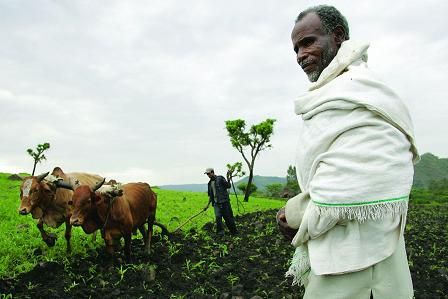United States Announce Intention To Join Global Alliance for Climate-Smart Agriculture
Liberia, Malawi, Niger, Nigeria, Tanzania and the United States confirmed last week their intention to join the Global Alliance for Climate Smart Agriculture (GACSA).

Liberia, Malawi, Niger, Nigeria, Tanzania and the United States confirmed last week their intention to join the Global Alliance for Climate Smart Agriculture (GACSA).
At the August 4 U.S.-Africa Leaders Summit event entitled “Resilience and Food Security in a Changing Climate,” Secretary of State John Kerry announced the United States’ intention to join GACSA and encouraged African countries to participate. The event highlighted the nexus of food security, climate change, and resilience – issues that are of particular concern among African nations, where much of the population, relying on rain-fed agriculture, is especially vulnerable to the impacts of climate change on rainfall patterns and seasonal temperatures.
Slated for launch at the UN Secretary General’s Climate Summit on September 23, GACSA is expected to engage a range of government, multinational organizations, private sector, farmers and civil society stakeholders to achieve sustainable increases in agricultural productivity, greater resilience and a reduction of agriculture-related greenhouse gas emissions.
The United States supports climate-smart agriculture globally through its Feed the Future and Global Climate Change initiatives. This year, USAID initiated ten new Feed the Future Innovation Laboratories to increase global food security and help smallholder farmers boost incomes and improve nutrition. These laboratories draw the expertise of top U.S. universities and developing country research institutions, and will tackle some of the world’s most challenging agricultural research problems with the premise of introducing safe, environmentally sustainable proven and appropriate technologies to the world's most vulnerable people.
Sponsored Content
Earlier this year, the U.S. Department of Agriculture announced the establishment of seven regional climate hubs to deliver information to farmers, ranchers and forest landowners in the United States to help them adapt to climate change and weather variability.
The U.S. State Department also supports targeted programs that advance climate resilience and food security throughout the world including through contributions to the multilateral Least Developed Countries Fund and Special Climate Change Fund and through support for the Climate and Clean Air Coalition’s new Agriculture Initiative.





